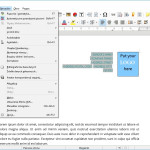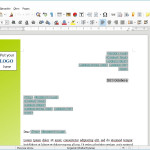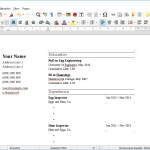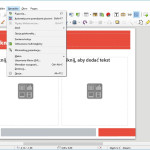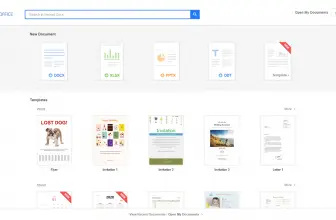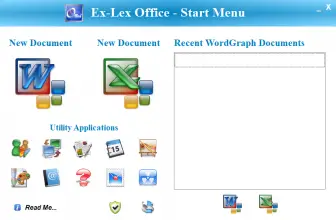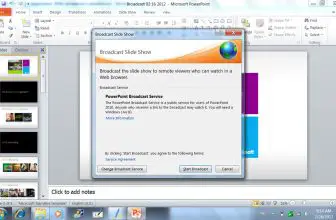LibreOffice is a free office software suite available under Open Source license. It can replace virtually any commercial functionality of Microsoft Office. It is also a better alternative to Apache OpenOffice. The similarities to the latter are obvious, as LibreOffice is based on the older version of OpenOffice. However, due to its continuous development, it may be a better choice than its protoplast.
How to Download LibreOffice
To get the program, follow the link below this review.
What are the Differences Between the Two Famous Free Office Suites?
When Sun Microsystems published the source code of StarOffice in 2000, it also declared that, based on it, it would itself a new version called OpenOffice.org. However, some developers were concerned that Sun Microsystems would be commercializing this software as it was in fact, a commercial company.
Even though this scenario didn’t come to life and OpenOffice.org has evolved as free software, the scared devs decided to move on to a new initiative. Thus LibreOffice was born and was developed by a team which was independent of Sun Microsystems. This has happened since SM was absorbed by Oracle. As a result, the first stable version of LibreOffice was released on January 25, 2011. The word “first” may be slightly surprising here, since the version that was released was 3.3.0, but it was based on OpenOffice.org 3.3. The sequel to the original version, however, gradually began to differ from the original. The development was also faster – the best proof is that for example in October 2017 the latest stable version of LibreOffice was 5.3.6, released August 31, 2017, and in the case of OpenOffice, it was version 4.1.3 of October 12, 2016.
Thus, the backbone of both office suites and the set of application components is the same. Both have the following components:
- Writer – the text editor.
- Calc – the spreadsheet program.
- Impress – the presentation software.
- Draw – the drawing application for vector graphics.
- Math – the mathematical Formulas tool.
- Base – the database system.
Consequently, most of the information included in the Apache OpenOffice review also applies to LibreOffice. However, it is important to know that despite these similarities, there are also many differences between them. Let’s look at the most important ones.
9 Reasons Why LibreOffice Is Better Than OpenOffice
Development. Only LibreOffice is consistently and constantly being developed. And do not look at it only in terms of functionality available. Someone might say that what has so far been implemented in OpenOffice is sufficient for them and maybe that person does not need new versions. Please note, however, that no new releases mean also no updates to fix bugs and vulnerabilities.
Availability. LibreOffice is available on all platforms just like its competitor, but it can also be installed on BSD (FreeBSD, NetBSD) and (in limited functionality) on Android. Also, the number of languages the software is translated into is different. Libre winds here with an impressive 110: 38 ratio. This alone means the difference in the number of users and developers working for LibreOffice. Consequently, it translates into better chances for further, stable development.
User Interface. OpenOffice is very consistent when it comes to the appearance of the user interface. This can, of course, be an advantage since new versions do not require learning to handle tools from scratch. However, this is not what is always expected. When Microsoft left the traditional UI, there was a lot of protests among the users. Over the years, it has turned out that the refreshed Ribbon interface has taken over and works well in practice. Also, LibreOffice has introduced a similar solution Its Notebook Bar looks like a step in the right direction.
Efficiency. Today’s computers are very efficient and it would seem that when working with such programs like office productivity applications speed will not be crucial. In practice, it turns out that there are many older computers on which LibreOffice is simply faster than the Apache versions. And even if your computer is modern, when you edit a hundred-page document, full of charts, tables, and images, then LibreOffice’s performance advantage over OpenOffice will be clearly visible.
Online work. Both suites are classic desktop applications. It’s hard not to notice the market trend for moving office applications and documents into the cloud, as evidenced by the growing popularity of Google Docs or Office 365. It is easy to guess that only LibreOffice was working on launching an online version called LibreOffice Online. Apache OpenOffice has so far made no attempts to go to the cloud.
Templates. When you create a new presentation or any document, for that matter, you can of, course, start with a clean document. But you will get results faster if you use document templates. They will automatically apply a set of stunning colors, fonts, and graphics, which (depending on your intent) will make your document look more professional. LibreOffice offers a vast number of templates. They are available immediately after the installation of the suite or downloadable from the web.
64-bit version. Most modern computers are equipped with a 64-bit version of the operating system. This is the only reasonable choice when your computer has more than 4 GB of memory. However, if your system is 64-bit, then the applications you use should also be 64-bit. Otherwise, you will experience reduced performance, as the system will have to maintain a 32-bit environment next to the native 64-bit one. As it happens, only in the case of LibreOffice you can count on 64-bit versions.
Data exchange with MS Office. Whether you like it or not, the Microsoft suite is an unofficial standard for office suites, so it’s hard to work effectively with an office suite that would not be compatible with the formats used by Microsoft Office. Until MS Office 2007 which version introduced the XML-based file formats, both free suites offered full data exchange with the paid counterpart. However, only LibreOffice can work fully with the XML files generated by Microsoft. We are talking here about the DOCX, XLSX, or PPTX file formats.
License. LibreOffice is available on the fairly standard Open Source Mozilla Public License version 2.0. On the other hand, Apache OpenOffice uses Apache License 2.0, which does not require any changes to the software to be made public. As a result, Libre is even more open to both the development and security analysis.
As you can see, the duel between Apache OpenOffice and LibreOffice is quite one-sided and undoubtedly the winner is Libre. This is good both from the perspective of the user and the developers working on the development of both suites. The first does not have a dilemma which suite to choose. The latter do not have to share their time to implement the same components in two different sets of software and can concentrate on one. This does not mean that LibreOffice will always be the best choice. Just as LibreOffice was based on OpenOffice.org and in a few years greatly surpassed its ancestor, it is possible that in a few years another office suite will beat Libre on the list of most functional free office suites. Also, keep an eye on the world of online office suites. For now, the functionality of Google Docs is significantly lower than that of LibreOffice, but will it always be so? Time will tell, but now nothing shows that LibreOffice time is nearing its end.



